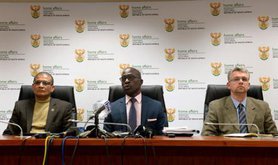What are the intended/unintended consequences of anti-smuggling and anti-trafficking policies?
Increased anti-smuggling and anti-trafficking policies lead to increases in criminalisation of low-income/working-class communities. In 2015, officials in Hidalgo County, Texas witnessed as the Texas legislature wrote changes into a border security bill in order to heighten penalties for “the smuggling of persons”. One consequence of these measures will be to separate families, as women and men will now serve lengthier prison sentences for their roles, however minor, in facilitating the movement of people.
Empirical research on irregular migration facilitation has shown how loosely organised people-smuggling networks rely on transnational kin- or group-based systems to conduct services. Within these networks, many are similarly positioned in socio-economic terms to their migrant colleagues.
Both migrants and facilitators are punished by a system that denies the political-economic conditions causing irregular migration.
The people I have spoken with in the course of my research are both U.S.- and Mexican-born women and men engaged in smuggling facilitation to supplement their sub-livable incomes. Upon being surveilled, detained, and prosecuted through the federal court system, they were criminalised and jolted out of their everyday lives. Their family systems were destabilised, and – like migrants – they experienced detention, criminalisation and family separation.
They are often times migrants themselves or US-born. Although their criminalisation experiences differ, both are punished by a system that denies the political-economic conditions that cause irregular migration and that lead people, on both sides of the border, to engage in extra-legal cross-border movement.
Are border fortification/restrictions a useful or counterproductive response to mass movements of people?
Instead of curbing irregular mass movements of people, the border security apparatus in Texas creates avenues for increased violence against migrants passing through the rancho communities nestled along the Rio Grande – a topic I have studied since 2010.
A woman who performed facilitator roles hundreds of times and served a 15-month prison sentence for smuggling offenses explained to me how the 18-foot levee-wall located directly behind her former residence once caused a group of five people crossing irregularly to walk in the opposite direction (toward the wall), actions that alerted the Customs and Border Protection authorities and a chase ensued.
One of the crossers ran into a wasp nest as he sped into the surrounding vegetation and another lost his prosthetic leg as he fell running up the levee to avoid capture. Most were caught and border patrol agents called 911 to aid the wounded crossers. The facilitators watched nearby as the border crossing drama violently collapsed.
Militarised policing tactics along the Rio Grande create the undetermined outcomes of irregular border crossings and exacerbate physical injuries, exhaustion, and not infrequently lead to death. Politicians should pay attention to the complex realities of border communities, their local sense of morality, ethics, and justice, and respond to the mass movements of people with humane and non-violent policies toward migrants and their facilitators. This means holding the state, rather than just the smugglers, accountable for the structural violence carried out at borders in the name of national security.
Read more
Get our weekly email


Comments
We encourage anyone to comment, please consult the oD commenting guidelines if you have any questions.